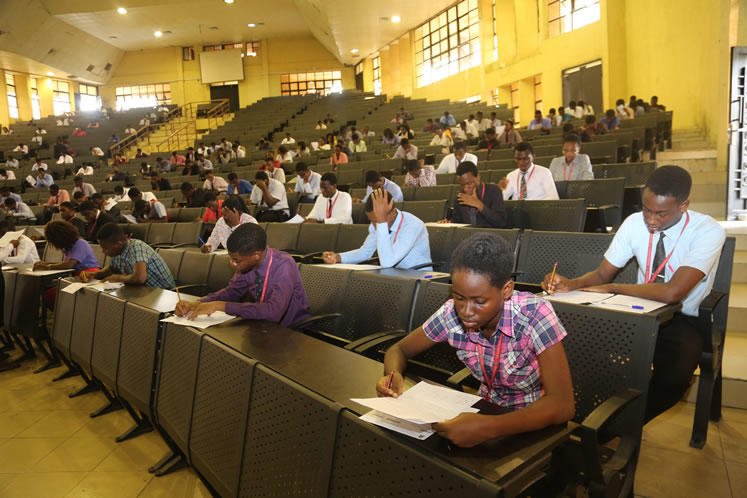In a bold move signalling commitment to educational expansion, President Bola Ahmed Tinubu has given his approval for the establishment of a brand-new federal university in Lagos State. The announcement marks a significant development in Nigeria’s higher-education landscape, given Lagos’s status as the country’s commercial nerve-centre and its acute demand for tertiary learning opportunities.
Table of Contents

Ambitious Expansion in Lagos
The decision comes at a time when Lagos — a city already grappling with high student demand — stands poised to host an institution directly backed by the Federal Government. While full details on the university’s name, campus location, and launch date are yet to be published, the approval signals that this university is intended to be a federal government-owned institution, rather than a state or private venture.
Stakeholders in education have interpreted this as part of a broader push by the Tinubu administration to bolster access to tertiary education across Nigeria, especially in high-density zones like Lagos. The government’s rationale is that, beyond the mere quantity of institutions, attention must be paid to geographic spread, infrastructure, and relevance of courses to national development.
Why Lagos Matters
Lagos State’s profile helps explain the significance of this decision. With Nigeria’s largest population, busiest ports, and a huge concentration of industries, Lagos holds both promise and challenge for higher education. On the one hand, its youth population demands more access to degree programmes; on the other hand, existing institutions are burdened with overcrowding and infrastructure deficits.
By placing a federal university in Lagos, the government appears to be acknowledging that the national capital city is no longer just an administrative centre but a key hub for innovation, human-capital development and regional competitiveness. For many students and their families, this approval brings hope for improved access and reduced travel or relocation burdens.
From personal conversations with Lagos-based students, several admitted they had applied to multiple universities far from home simply because local options were saturated. A federal university in-state would therefore reduce that stress and bring educational opportunities closer.
What This Means for Students and Stakeholders
For prospective students, the move offers a fresh route into tertiary education within Lagos — potentially reducing costs in housing and transportation, and opening up new programmes aligned with national development priorities. Families in the region may view this as a tangible improvement in educational equity.
For policymakers and education-industry players, the approval prompts questions about funding, staffing, accreditation, and quality assurance. The success of a new institution depends not merely on bricks and mortar but on the academic vision, research culture, faculty strength, and links to industry and community. If poorly resourced, new universities risk becoming under-utilised or duplicative.
The broader Nigerian context also adds nuance. Previous announcements under the Tinubu administration have included approvals for federal universities in other states, such as Osun and Ekiti. However, some analysts have cautioned that simply increasing the number of institutions is not enough; attention must also focus on governance, academic standards and sustainable funding.

A Leap Forward — With Challenges Ahead
As Nigeria celebrates the new federal university in Lagos, practical questions loom: What will be the priority academic programmes? Where exactly will the campus be located? How will the institution integrate with Lagos’s socio-economic environment? Will the university specialise in fields (such as technology, logistics, maritime studies) tied to Lagos’s economic strengths?
According to official signals from the presidency, the aim is to align new institutions with national objectives of research, innovation, and workforce development. This suggests that the Lagos campus may emphasise disciplines that reflect the city’s vibrancy and future growth. That said, previous establishment processes in other states have encountered budgetary delays, infrastructure lags, and staff recruitment challenges.
From my own experience following similar roll-outs, the first two to three years are critical. They set the tone for campus culture, student intake quality, accreditation progress and community engagement. A newly authorised federal university in Lagos must therefore hit the ground running, with planning and operational clarity.
In Lagos — with its ever-rising cost of living and intense competition for campus space — the pressure will be even greater. Hence the government must ensure that funding is sufficient, the site is well selected, and the academic portfolio is relevant. Urban universities face complex demands: commuter traffic, housing shortages, industry linkages, and diverse student backgrounds.

The Road Ahead
For parents, students and educators in Lagos, the message is hopeful yet guarded: approval has been granted, but the real work begins now. Federal Government, Lagos State Government, and educational regulators will need to collaborate closely to ensure that this institution not only launches but sustains excellence.
Long-time Lagos residents might remember previous announcements of higher-education projects that stalled or languished in planning. This time around, heightened visibility and immediate stakeholder interest raise the bar for delivery. For the local community, the hope is that the new federal university becomes a beacon of opportunity — not just another building.
As we await further details — campus blueprint, admission timeline, academic focus — one thing is clear: the establishment of a federal university in Lagos marks a strategic investment in Nigeria’s educational future. If executed well, it could help unlock local talent, reduce migration for study, and contribute to the state and nation’s socio-economic resilience.
In the words of one Lagos parent I spoke with: “Having a top-tier federal institution right here in Lagos would change a lot. My children study here, live here — we don’t want to send them far away. We want quality and proximity.” And indeed, with this approval, that aspiration may well start to become reality.
More updates will follow as the campus plans crystallise. For now, students and families in Lagos have reason to feel some optimism — the landscape of higher education in their city is shifting, and with it, possibilities.
Join Our Social Media Channels:
WhatsApp: NaijaEyes
Facebook: NaijaEyes
Twitter: NaijaEyes
Instagram: NaijaEyes
TikTok: NaijaEyes
READ THE LATEST EDUCATION NEWS





